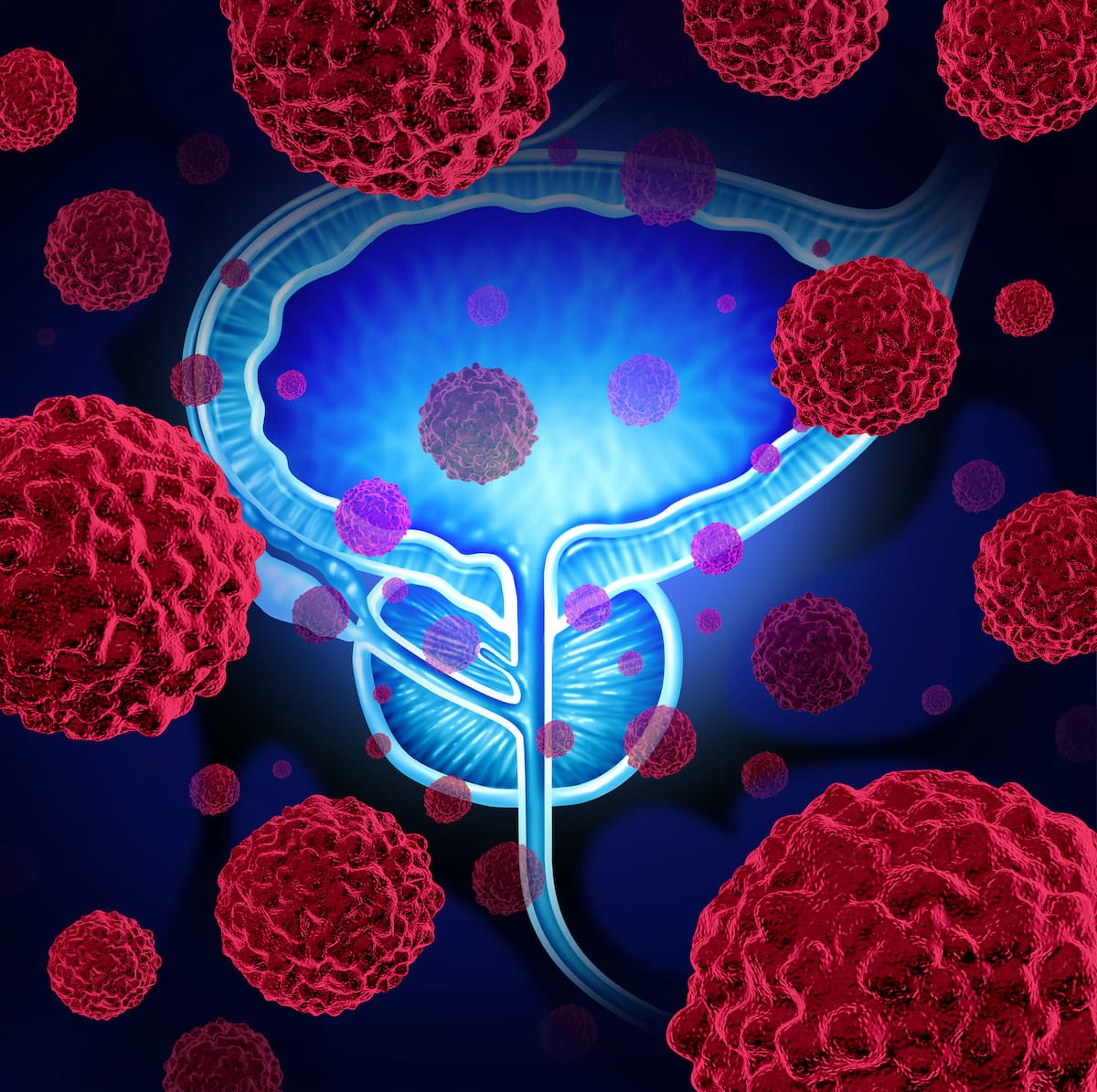Time to Progression in mHSPC Cohort Prolonged With Darolutamide
The rate of subsequent anticancer therapy was reduced with darolutamide vs placebo in patients with mHSPC in the ARASENS trial.
“Thus, patients receiving darolutamide were able to spend a longer time in HSPC, which is associated with improved health related quality of life,” according to presenting author Marc-Oliver Grimm, MD.

Darolutamide (Nubeqa) plus androgen deprivation therapy (ADT) and docetaxel delayed the time to progression and improved overall survival (OS) vs placebo plus ADT/docetaxel, according to post-hoc analysis data from the phase 3 ARASENS trial (NCT02799602) presented at the 2024 American Society of Clinical Oncology (ASCO) Annual Meeting.1
Previously reported findings from ARASENS found that darolutamide plus ADT and docetaxel significantly reduced risk of death by 32.5% compared with placebo plus ADT and docetaxel in patients with mHSPC. In addition, treatment with darolutamide was found to delay progression to CRPC. Median time to CRPC was not reached in the darolutamide arm compared with 19.1 months in the placebo group.2
“Thus, patients receiving darolutamide were able to spend a longer time in HSPC, which is associated with improved health related quality of life,” said presenting author Marc-Oliver Grimm, MD, of Jena University Hospital in Jena, Germany.
For the current study, Grimm and coauthors reported post-progression subsequent anticancer therapies and related survival from ARASENS.
Patients with mHSPC, were randomly assigned 1:1 to receive darolutamide 600 mg twice daily or placebo in addition to ADT and docetaxel. “After treatment discontinuation, patients entered active and long-term survival follow-up periods, during which assessments included subsequent life-prolonging anticancer therapies and survival outcomes,” the authors wrote in their poster.
The authors defined post-progression survival as time from first subsequent anticancer therapy to death based on Kaplan-Meier estimates.
Out of 1305 patients treated in ARASENS (darolutamide arm=651 patients; placebo arm=654 patients), 315 patients who received darolutamide/ADT/docetaxel, and 495 patients receiving placebo/ADT/ docetaxel entered follow-up following the end of study treatment.
“Of these 57%, of darolutamide patients and 76% of placebo patients received subsequent anticancer therapies,” Grimm said.
The 5 most common post-progression first subsequent anticancer therapies included abiraterone (Zytiga), enzalutamide (Xtandi), cabazitaxel (Jevtana), docetaxel, and radium-223 (Xofigo). In the darolutamide/ADT/docetaxel group, more than 90% of first subsequent therapies consisted of an androgen receptor pathway inhibitor (ARPI) or chemotherapy. In the placebo/ADT/docetaxel group, more than 78% of first subsequent therapies consisted of enzalutamide or abiraterone.
“For patients who received darolutamide plus ADT and docetaxel, minimal differences in post-progression survival were observed between first subsequent therapies. First subsequent therapy with an additional androgen receptor pathway inhibitor did not appear to provide further survival benefit vs a therapy different from an androgen receptor pathway inhibitor, which was mainly chemotherapy. For patients who received placebo plus ADT and docetaxel, post-progression survival was improved when the majority of these patients receive the first subsequent anticancer therapy with a different mechanism of action,” Grimm reported. The median post-progression survival was 23.0 months with an ARPI compared with 13.5 months with non-ARPI treatment.
In addition, patients who received darolutamide/ADT/docetaxel remained on treatment for more than 2 years longer than the placebo/ADT/docetaxel arm.
“In summary, darolutamide in combination with ADT and docetaxel increased overall survival and delayed time to disease progression to mCRPC compared with placebo plus ADT and docetaxel. For patients receiving darolutamide plus ADT and docetaxel, post-progression survival was similar independent of subsequent anticancer therapy with an androgen receptor pathway inhibitor or chemotherapy. In contrast, patients receiving placebo plus ADT and docetaxel mostly sequenced to an androgen receptor pathway inhibitor, and this first exposure to an androgen receptor pathway inhibitor provided post-progression survival benefit vs chemotherapy,” Grimm concluded.
References
- Grimm M-O, Smith MR, Hussain MHA, et al. Post-progression survival of patients with metastatic hormone-sensitive prostate cancer (mHSPC) who received darolutamide or placebo: Post hoc analysis of ARASENS. Presented at: 2024 American Society of Clinical Oncology Annual Meeting. May 31-June 4, 2024, Chicago, Illinois. Abstract 5083. https://meetings.asco.org/abstracts-presentations/234461
- Smith MR, Hussain M, Saad F, et al. Darolutamide and survival in metastatic, hormone-sensitive prostate cancer. N Engl J Med. 2022;386(12):1132-1142. doi:10.1056/NEJMoa2119115
Newsletter
Stay up to date on recent advances in the multidisciplinary approach to cancer.